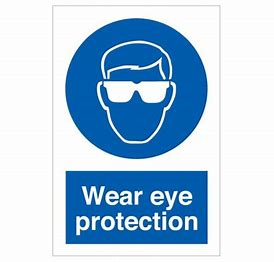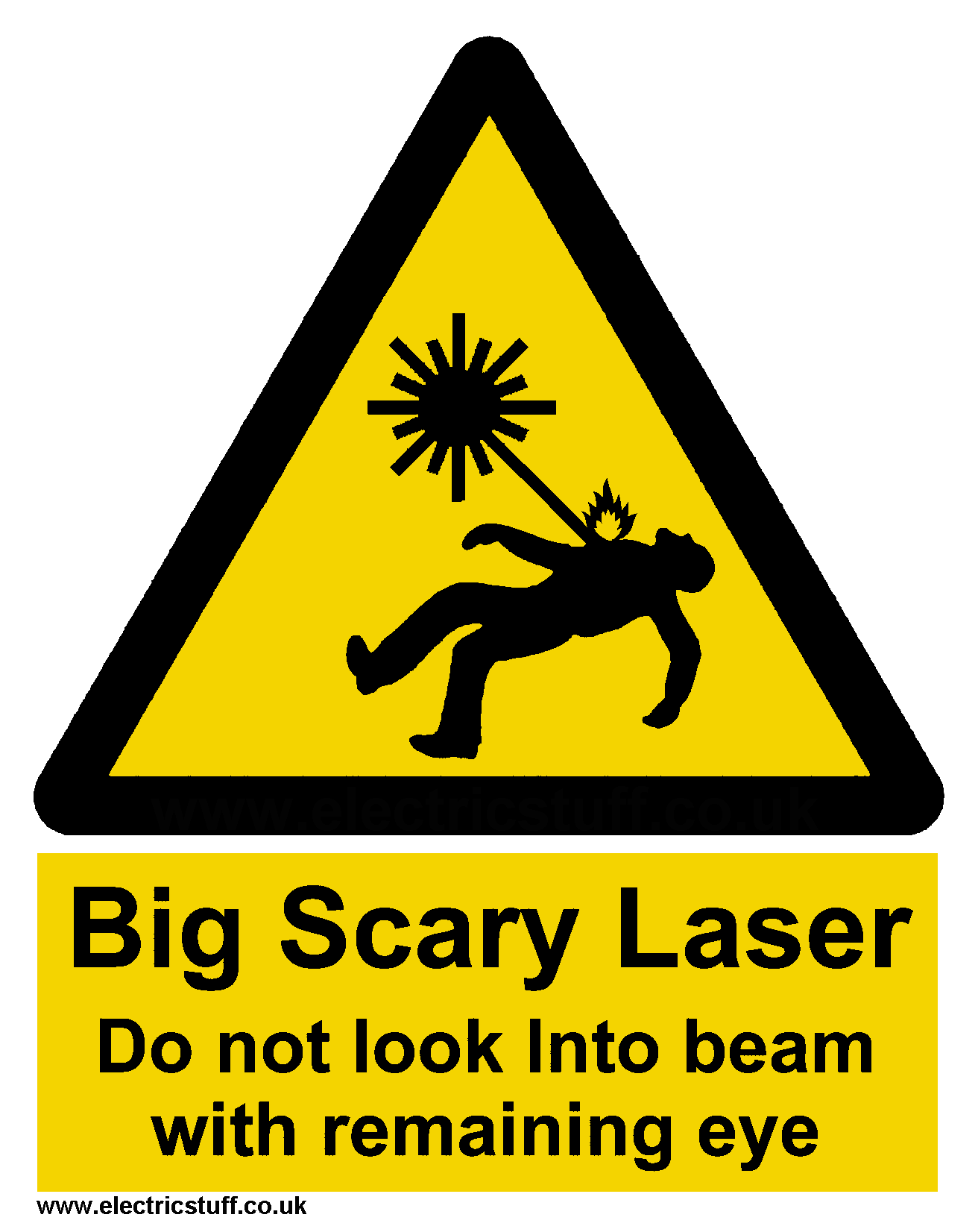What safety equipment should always be used when working with glass or chemicals?
2 Answers
There should ALWAYS be a protective layer between the bench and its chemicals, and your mince pies....
Explanation:
As a chemist I have sometimes worked in a laboratory without donning a labcoat (sometimes even alone, and why should I have not done that?). I have NEVER entered any laboratory without donning a pair of safety spectacles or optical spectacles. And why not? Well, clearly, the most vulnerable part of your person are your eyeballs, and the wearing of safety spectacles or goggles is an absolute requirement that you must ALWAYS observe.
These days, 1st year students are required to wear goggles...I think this is a bit excessive, nevertheless some form of eye protection is MANDATORY, and it is really a habit to develop, and make your coworkers develop.

The second poster is of course a joke....and a reminder not to look into laser with remaining eye...

Personally, I would question whether ANY safety equipment should "always" be used.......
Explanation:
It depends entirely what sort of "working" you're doing with glass, and what sort of chemicals you're working with.
Whilst some operations involving glass could involve a risk of fracture, and shards being propelled towards you (in which case safety goggles are essential) that is not universally the case. Filling a 500 ml glass beaker with water really doesn't require safety apparatus, anymore than filling a drinking glass with mineral water requires safety apparatus!
And "chemicals" is such an incredibly broad term - many "chemicals" are innocuous and do not require safety apparatus - sodium chloride? calcium carbonate? Not really going to cause skin or eye damage. On the other hand, concentrated sulphuric acid, chlorine gas? Definitely need eye, hand, and possibly breathing protection there.
I am always extremely skeptical of the concept of treating ANY chemistry work and ANY type of material and apparatus as being equally dangerous and having equal need of using safety apparatus or protective clothing. If people are simply told to put on protective clothes irrespective of the task they are carrying out and the materials they are working with, they fail to learn how to judge risk, and how to assess when and where to apply protective measures. Rather than developing into a scientist you develop into a sheep.


